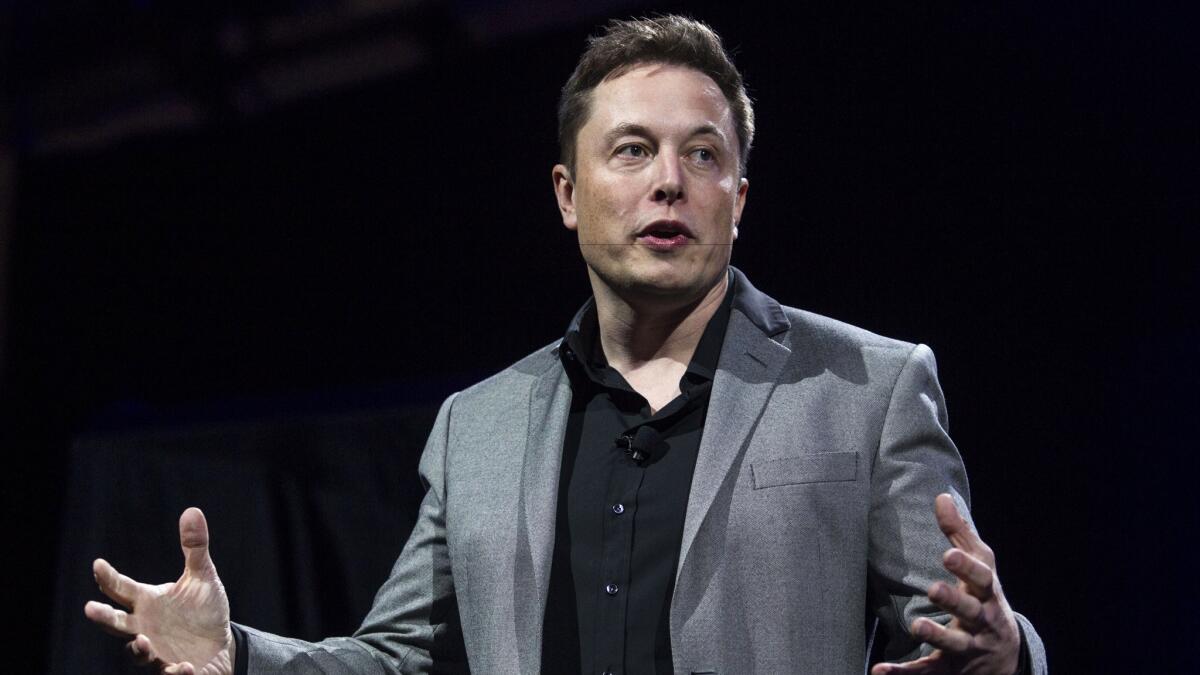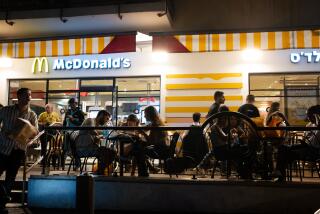Column: No middle seats? Some companies’ bold pandemic promises are easier made than kept

- Share via
Nobody’s suggesting the coronavirus has been good for businesses. But smart companies have recognized an opportunity to show the world they’re good citizens.
Insurance heavyweight Allstate, for example, announced in early April that it understood people were driving a whole lot less because of the pandemic, so it voluntarily cut car insurance premiums by 15% for a couple of months.
That was a sensible and savvy gesture, demonstrating to customers that the company feels their pain — and prompting California Insurance Commissioner Ricardo Lara to instruct other car insurers to follow suit.
Not all such corporate moves have been as successful. Some have come across as empty gestures intended more to score public relations points than make a meaningful stab at easing customers’ and workers’ financial stress and anxiety.
Case in point: United Airlines emailing passengers recently with a bold declaration that it would no longer sell middle seats to help people keep their distance from one another when traveling.
The carrier received due props for that — until a California doctor named Ethan Weiss tweeted out a photo from a United flight last weekend showing a cabin jam-packed with travelers, including occupied middle seats.
“I guess @united is relaxing their social distancing policy these days? Every seat full on this 737,” he wrote.
The airline responded that this was all just a misunderstanding, and that Weiss’ plane ride to San Francisco was full because United had generously provided free flights to 25 healthcare professionals who had volunteered to work in New York.
The carrier said in a statement that it remained committed to leaving middle seats open “where available.”
But that’s not what United had told Weiss and other frequent fliers. I got my hands on the email sent out by Toby Enqvist, the airline’s chief customer officer. It was titled: “We’re making changes with you in mind.”
Among other things, Enqvist said United is “automatically blocking middle seats to give you enough space on board.”
“Blocking” is airline lingo for not selling certain seats.
Charles Hobart, a United spokesman, told me the email from Enqvist “was a miscommunication and it was unfortunate.”
“We never promised or guaranteed that we wouldn’t sell middle seats,” he said, although that’s precisely what the airline pledged.
Rather, Hobart continued, United will “restrict” use of middle seats, “but if there’s demand, we will put someone in that seat.”
He said the airline understands how these seemingly contradictory messages “can be confusing to customers.”
Yeah, maybe something got lost in translation. Or maybe a senior United official, declaring that “safety has always been our top priority,” made a flashy promise to passengers that turned out to be more an aspiration than an actual commitment.
Also this week, supermarket giant Kroger, parent of Ralphs, revealed that its much-ballyhooed payment of $2-an-hour “hero bonuses” to grocery workers since April would come to a halt as of Sunday.
“Our associates have displayed the true actions of a hero, working tirelessly on the front lines to ensure everyone has access to affordable, fresh food and essentials during this national emergency,” Rodney McMullen, Kroger’s chief executive, said when the bonuses were announced at the end of March.
There were about 3,900 COVID-19 deaths nationwide as of that announcement. The total now tops 83,000.
I’d argue that grocery workers — like healthcare providers and others on the front lines —are demonstrating even more heroic behavior as the pandemic worsens. But apparently Kroger, along with some other retailers, believes it’s done enough to show its gratitude.
A few things, though. When Kroger decided to reward workers with hero bonuses, it made sure to issue a press release so everyone would know what a swell company it is. It issued no such press release about ending the bonuses.
Also, it’s not as though Kroger is running out of money — just the opposite. According to regulatory filings, the company is sitting on $2.3 billion in cash and cash investments.
Moreover, Kroger spent about $355 million in the first quarter repurchasing its own stock, which enriches shareholders but doesn’t do a thing for the guy in mask and gloves stocking cans on Aisle 12. The company still has $245 million set aside for additional share buybacks.
I asked John Votava, a Kroger spokesman, how the company’s mountain of cash and hundreds of millions of dollars in stock repurchases square with cutting off an extra two bucks an hour for workers.
He said Kroger “will continue to listen and be flexible in order to make decisions that balance what is best for our associates, customers, communities and the sustainability of our business.”
Um, OK.
Last but not least, the shy and self-effacing Elon Musk, who has positioned himself both as a coronavirus skeptic and as a CEO who totally gets it.
He has expressed doubt about the threat of the virus and even suggested, wrongly, that kids are “essentially immune.” Yet he’s also boasted about helping acquire ventilators for some hospitals and committed himself, at one point anyway, to providing a safe workplace for employees.
“Despite taking all known health precautions, continued operations in certain locations has caused challenges for our employees, their families and our suppliers,” Musk’s Tesla Motors announced on March 19. “As such, we have decided to temporarily suspend production at our factory in Fremont.”
Apparently those challenges have been mitigated, even though the coronavirus is more harmful, and more widespread, than ever.
This week, Musk sued Alameda County because it wouldn’t give permission for him to reopen. Then he reopened anyway, daring authorities to do something about it.
He also tweeted that he was all set to move his company to Nevada or Texas.
Have a nice trip, dude. There’s a middle seat with your name on it.
More to Read
Inside the business of entertainment
The Wide Shot brings you news, analysis and insights on everything from streaming wars to production — and what it all means for the future.
You may occasionally receive promotional content from the Los Angeles Times.











